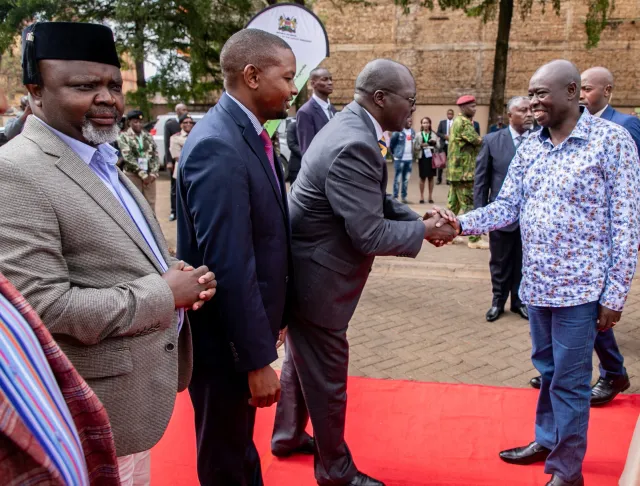Deputy President Rigathi Gachagua has officially opened a two-day Coffee Reforms Conference that is aimed at coming up with recommendations to address challenges faced by the coffee farmers in the country.
The event, being held in Meru County, brings together Governors from coffee growing counties, government officials, lawmakers and other stakeholders in the chain, among others.
The coffee sector has been faced with challenges that have almost crippled the sector.
The Kenya Kwanza manifesto has put weight on Agriculture as the backbone of the economy and has expressed willingness to do everything possible to bolster the sector.
“For the next two days, we will establish structures for long-term reforms in the coffee sub-sector,” Gachagua told the well-attended gathering.
“In the Executive Order Number 1 of 2023, President William Ruto tasked me with overseeing public reforms. Reforming the Coffee, Tea, and Dairy sub-sectors have formed part of my work as I engage stakeholders like yourselves, towards a turn-around to profitability.”
The conference is the climax of wide consultations with farmers, various State and non-State agencies within and without the country on sustainable reforms.
“For far too long, those who sweat most in producing the cash crop have benefited the least. This is why we are here today. We want to link the farmer to the consumer, directly,” noted the DP.
Some of the challenges bedevilling the sector have been attributed to legal and policy gaps.
The Deputy president has however brought on board Members of Parliament from the sector to brainstorm on possible policies that could be pushed in parliament that will aid strengthen the coffee sector.
From the engagements, legal, policy and operational gaps in the production and marketing chain have been identified forming a key component of the output of the conference.
The Kenya Kwanza administration is laying down strategies that will add value addition and identify high value markets for the commodity globally.
“With the high cost of Kenyan coffee in the international market, the Kenyan farmer should thrive economically as was the case some years back. Our farmers must get maximum returns from coffee. This will also boost our foreign exchange,” remarked the DP.
“We must rewrite the history of the Kenyan coffee, which dates back to 1894. This brand, was and still is known across the world by its superior and distinct aroma and flavour.”
The conference is expected to come up with far-reaching reforms that will, among other things, ensure coffee becomes the leading foreign exchange earner for the country.



